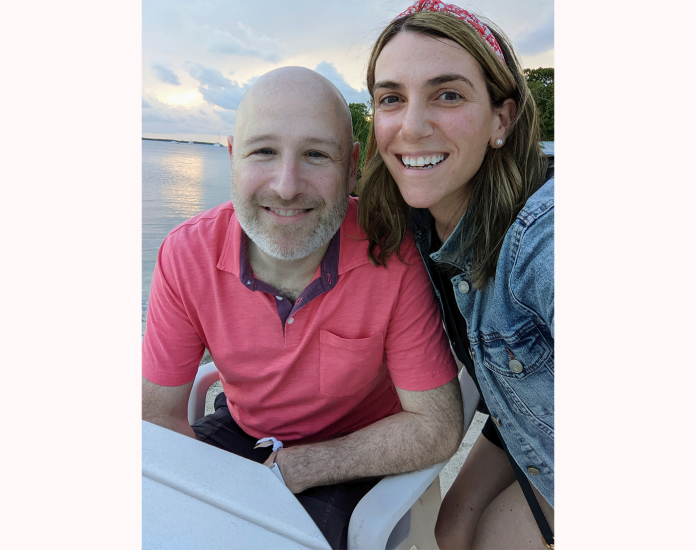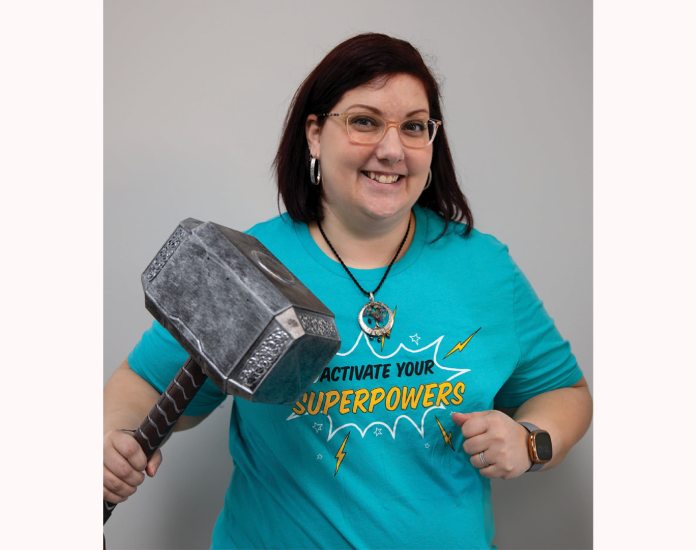What’s really driving all these quits? Three participants in the Great Resignation explain what drove them to make a change, and what life’s like on the other side.

Leaving Google in search of fresh passion
“It’s not a secret that Google is a great company,” says Freyman, who most recently worked at the
Read more:
He started thinking about potential next steps, and reached out to Progyny, a fertility benefits provider that is available to Google employees — and that had very recently helped Freyman and his wife welcome a daughter into the world.
“The IVF process is the most stressful, emotional time, and it often felt like Progyny — with its integration with insurance carriers and its relationship with clinics — was the only part of that process that had its stuff together,” he says. When a job opened, he jumped.
Now, as VP of business development at Progyny, Freyman says the day-to-day perks he can’t live without, like flexible work, are still available to him. But more importantly, he’s able to focus on a mission he feels strongly about: Helping employers deliver family-building support to all employees.
Read more:
“When I’m out in the market, one of the things I’m talking about is, How are you, Mr. HR Decision Maker or Mrs. HR Decision Maker, supporting some of the less represented communities of your employee population?” Freyman says. “How are you making sure that you have

Follow the leader
“My version of the Great Resignation was not about being frustrated,” Groner says. “I was enjoying my work, but it was time to level up. I know I’m good at what I do, and there are opportunities to grow, but I don’t want to do this work anymore. How do I reposition my career in a different category where I can accelerate from there?”
To figure out how to take his career to that next level, Groner reached out to a former boss, someone who’d previously helped him “level-up” twice before and was now working in venture capital at Forecast Labs. It was the pivot Groner was looking for, and he knew he would be able to thrive under his former colleague’s direction.
Read more:
“It’s like what they say in college: don’t take the course, take the professor,” Groner says. “I’ve tended to follow good people who are looking out for me, more than I’ve been following what I think might be right for me in the short-term. Because my trust in them has opened so many more doors for me than I could have imagined.”
Once the pair reconnected, Groner’s mentor was thrilled at the prospect of working together again, but encouraged Groner to pitch himself as an independent consultant rather than seek a staff position with Forecast Labs. It would be, he said, more lucrative for Groner. But for Groner, supported growth has always been a priority that ranks higher than compensation. After interviewing with the rest of the team at Forecast Labs, he joined, full-time, as a marketing director in 2021.
“As I follow good mentors and managers who believe in me, I’ve tried to tether my ambition to what the business needs, and to become a stakeholder in the inevitable success,” Groner says. “If I can get on the right path and develop expertise and become a master of one, then the money will follow.”

Room to grow, closer to home
Working in the registrar’s office at the business school of the University of Northwestern Ohio, Green was feeling two points of frustration when she decided to quit her job this spring. She’d lost sight of a path forward for her career; and the 45-minute commute was killing her.
“I had my daughter in 2019, and during the early days of the pandemic, working from home was so great,” Green says. “Now, driving 45 minutes to and from work every day, and spending nine hours there, I’d just miss so much.”
Green wasn’t committed to staying in education; she just wanted something closer to home. She applied for a role at Marketing Essentials, a nearby digital marketing agency. The minute she met with CEO Patty Cisco, Green was sold.
Read more:
“The interview process was so different — she asked me so many questions and really wanted to understand my skills beyond my experience,” Green says. “It just made me want to work for her more than anything.”
Green joined Marketing Essentials a few months ago, and found her rhythm as an SEO specialist, supported by a company-assigned mentor. In addition, she’s encouraged to pursue continuing education, and has attended multiple conferences in her short tenure.
“I love to learn,” Green says, “so the ability to take time and go to conferences is big for me.”
Despite the many benefits of the role, it came without health insurance. For Green, who has insurance through her husband’s employer, the perks of her new gig outweigh any additional healthcare costs she could envision.
Read more:
“We get a stipend for office equipment, for child care, we get a paid lunch break, and our CEO promised a review and potential raise in four months,” she says. “At my last job, it took me four years to get a raise, and that was only because I completed my master’s, not because of my good work.”
On top of that, Green has found the flexibility she’s been craving. No one’s tracking when she puts in her hours — as long as the work gets done each day, she’s free to manage her family and care for her daughter as she needs to. She’s so happy in her new role, she’s trying to make it a family affair.
“I’m trying to get my husband hired,” she says. “He’s got all the qualifications we’re looking for, and he learns fast. I know he’d do a good job.”






